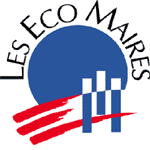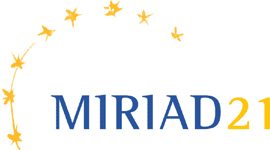Miriad 21


MIRIAD 21 Project is related to Agenda 21: Urban Sustainable Development and aims to ensure implementation of the SEVESO II directive by involving citizens in the management of industrial risks and by developing strategies (public awareness) for risk prevention amongst citizens and in particular children.
Project leader: ECO MAIRES, Paris, France NGO as roof organisation for 154 French municipalities with seat in
Paris Raison sociale : Association Les Eco Maires (Association des Maires pour l’environnement et le développement durable) Nom abrégé : Les Eco Maires Numéro d’enregistrement légal : 34883 – Préfecture de la Région de Haute Normandie et du Département de la Seine-Maritime Statut juridique du demandeur : Association loi 1901 à but non lucratif N° de TVA : FR 38378 598 122 000 26 Nom et Titre de la personne habilitée à engager juridiquement l’organisme demandeur : Mr. Dominique JOURDAIN, Président des Eco Maires Nom et Titre du responsable technique : Mme. Nicole ALBERTINI, Déléguée Générale des Eco Maires
Adresse du siège du demandeur
Rue : Boulevard Saint Germain N°: 241 Code postal : 75 007 Ville :
Paris Pays:
France Tél : + 33 (0)1 53 59 58 00 Fax : + 33 (0)1 53 59 58 09
Action for Participation of Citizens
Methodology: Citizens’ forum – dialogue with experts to question them about safety standards for industrial activities and in turn what citizens believe are minimum requirements for risk prevention.
Aim: Raising risk awareness and safety standards
As risk awareness is also a specificity of location and involvement different perceptions of industrial risks have to be compared and brought together. Here the role of NGOs near industrial sites of crucial importance to get citizens involved.
MIRIAD 21 wants to create a bridge of understanding between citizens and the local authority in their area.
Aim of Citizens’ forums:
- create consensus around key issues and how they are to be handled.
- develop ‘participatory models’ with citizens taking an active interest in risk management measures.
Methodology:
- Citizens’ jury: risk assessment with and without experts
- Planning and industrial locations near human settlements: surveys
- Citizens’ foresight: emphasis on anticipatory risk assessments
- Consensus conference: common understanding
- Voting conference: validating opinions
- Deliberate opinion polling: public dissemination of outcomes
Citizens and public domain
- involving media: media campaign – evaluation of quality of articles: public accessible information, issues named, responses by public bodies and political figures – validation of information through first hand experiences – public perception of things and deviation of opinions from ordinary citizens to experts – difference between crisis period and normal times – pluralistic culture, routine and safeguards against emergencies: risk prevention and social norms for industrial activities - such a citizens’ forum touches upon ‘morals and values’, as the issues are linked to how to safeguard lives in an industrial and post industrial age whereby it is even more important to get rid of the illusion that in an Information Society there would be no industries existing with high risk to the nearby population
- industrial production is linked to the common good insofar as it means economic development, jobs, wealth and consumption as part of a certain standard of life, hence it shall not be easy to separate the issue of contribution to the common good from attaining and keeping a high standard of common good, including health, quality of air, positive waste management etc. so that in the end risks against achieving certain economic goals becomes an evaluation and preference within the scale of freedom of choice. Less risks means also in certain ways another type of industrial production and therefore economic development. The question is the awareness of such a choice in view of what kind of concept of common good?
- Once citizens become active, they can move towards setting the urban agenda and call for quite another kind of accountability by industry to the community when it comes to risk prevention. - Once the citizens have participated in such a forum, a leading question will be what would they put on the agenda back home in the light of what they have just learned. POIEIN KAI PRATTEIN
In Partnership with Greek local authorities, in particular with Komotini but also with Kifissia while Asproprygos was addressed but never joined the project.
Komotini can be said to be successful due to strong link to a local NGO for the Environment which has already a solid basis of cooperation with the local municipal government. This allowed vice mayor and citizens of Komotini (selected through the NGO) to participate in the project and thereby motivated at local level further going actions, including MINI MIRIAD: action with school children when it comes to risk awareness and risk prevention.
Tasks:
- coordinator of Greek local authorities with link to ECO MAIRES
- eep the Greek authorities informed (including translating from French into Greek as most of the local Greek authorities have only a bare working knowledge of English or French)
- specific need: give guidance in the implementation of MIRIAD 21 and inform about next steps
- actions sustained in Greece as back-up to central coordination in Paris
- share experiences of actions at international level (workshops, conferences and above all participation in the citizens’ forums) so as to tie in the local community into the project
- positive experience with ‘second level’ expertise at POIEIN KAI PRATTEIN as a new generation of semi volunteers become involved in civic duties and European project work
- link to civil protection exercises and citizens' involvement in civic duties
« Recommendations | SISMA Project - Interreg III B CADSES »
